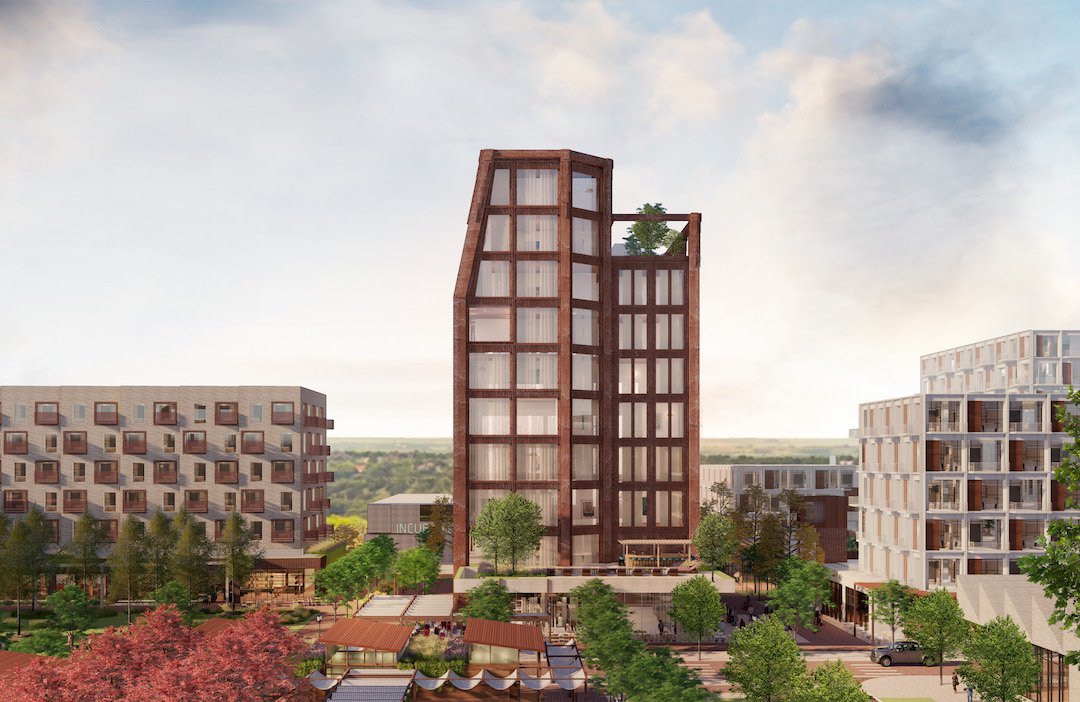The Fort Worth City Council has approved an ambitious $1.7 billion mixed-use development on the edge of the Cultural District, greenlighting a public-private partnership expected to transform the northeast corner of University Drive and White Settlement Road.
The project, led by FW Westside RE Investors, LLC, will bring a slate of new offerings to the site of the former Fort Worth school district administration building, including nearly 900,000 square feet of Class AA office space, 238,000 square feet of retail, a 175-room full-service hotel, and 1,785 multi-family residential units.
The development, dubbed Westside Village, will unfold in four phases through 2035.
To support the project, the city of Fort Worth has agreed to provide up to $80 million in performance-based grants over 15 years, reimbursing up to 85% of new city property taxes generated — excluding multifamily components. Additionally, the city will seek to establish a new tax increment financing (TIF) district to contribute up to $45 million toward public infrastructure like roads, utilities, and streetscaping.
FW Westside RE Investors is a partnership between Keystone Group, a Fort Worth-based private investment firm chaird by Robert Bass, and Larkspur Capital.
“This project is just the latest example of how we utilize public-private partnership at the city of Fort Worth to bolster our local economy and revitalize communities,” said Fort Worth Mayor Mattie Parker. “The development gives thoughtful attention to preserving the city’s rich natural heritage and culture while also prioritizing next generation design.”
The first phase of the project, which must be completed by the end of 2030, includes $410 million in investment and at least 200,000 square feet of office space, 95,000 square feet of retail, and a 150-room hotel.
Each subsequent phase will build on that foundation, ultimately culminating in one of the largest new developments in central Fort Worth.
City officials emphasized that the deal aligns with Fort Worth’s long-term economic development goals and that the incentives are structured to ensure the developer meets strict investment and construction benchmarks.
If any phase falls short of its investment or construction benchmarks, the city’s financial commitment will be reduced accordingly, which is typical of any such partnership the city enters.
The development is expected to generate significant economic impact through increased property values, job creation, and expanded sales tax revenues in underutilized real estate.
“Our collaboration with the city underscores a shared vision for long-term growth, community connection, and sustainable, next-generation urban design,” said Carl Anderson, president of Larkspur Capital. “This project will not only redefine this part of Fort Worth, but also reinforce the city’s reputation for charm, culture, and commerce.”
Austin-based Michael Hsu Office of Architecture is leading the master plan design. The district will integrate wellness, retail, entertainment, and dining with layered design moments throughout.
The district will include intimate paseos, public plazas, and lush courtyards to “foster a welcoming, human-scaled atmosphere.”
The development will feature a multimodal transportation network that links to the Upper West Fork trail system, making the district easily accessible by foot, bicycle, or public transit. Select industrial buildings in the area will be thoughtfully repurposed to retain the neighborhood’s historic character, while integrating modern, sustainable design elements.
Phase one will introduce two mixed-use buildings constructed above a shared parking garage. The office component — designed by MHOA with Corgan as architect of record — will include premium office space above street-level retail. Corgan is also leading the design of the multifamily building, which will offer residential units, live-work spaces, and retail at the ground floor.
Construction is slated to begin later this year.
Seattle-based landscape architecture firm GGN is overseeing the design of public areas.
“The Westside project is a bold and visionary investment to transform an underutilized area of our central business district,” said District 9 Councilwoman Elizabeth Beck, in whose district the construction is taking place. “Beyond creating new retail and office space, it represents a strong public-private partnership with the city to address long-standing flooding challenges and improve quality of life for nearby residents.”
